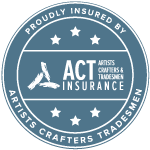|
In every manuscript, there will be inconsistencies, and no matter how hard you and your friends comb it, some will slip through.
Imagine that you are about to publish your book. The manuscript is as pristine as human eyes can make it. However, to ensure this, the wise indie will follow these steps, in this order: First, as they are writing the manuscript, they will create a list of made-up words and usages that are unique to their manuscript. This is called a style-sheet, or in some circles, a Bible. The author will refer back to it and update it. They will supply the editor with it, who will also refer back to it and update it, which will ensure that fewer inconsistencies make it through to the final product. Once the manuscript is submission ready, the wise author will:
I made use of all these steps for my most recent manuscript and still, the narrator app helped me locate several small inconsistencies, one of which (lighting versus lightning) could have thrown a reader out of the narrative. (There is no such thing as a lighting-mage in my books, although I do have lightning-mages.) I keep a style-guide, a list of all the names, towns, and other odd things with their correct spellings, and this is what my editor refers back to when she is going over my work. Using and reefing back to this list ensures consistency, so there is no accidental drift in the spelling of a name. My global search list to correct inconsistencies found by the free Natural Reader narrator app for the final manuscript:
Despite my best efforts, some of these inconsistencies (those I marked in red) were found in the ARC and were corrected. I accept that it’s possible that other inconsistencies will still exist in the published book, but not because I haven’t done due diligence and made every effort to eliminate them. My next book, a literary fantasy set in an alternate medieval world, is undergoing the same process. The manuscript has been through the Beta Reading stage and is is now being edited by a professional line editor. People say, “You’re an editor. Why do you pay someone else to edit your work?” I always answer, “Because I want the reader to love the book.” We writers never see our own work with a clear, unbiased eye. We see what should be there, not what is there. This lack of an unbiased perspective is why Indies are held in such low regard by the industry as a whole. Indies who want their work to be looked upon as professional will follow these suggestions. We can’t afford to be less than diligent with our process of preparing the manuscript for publication, as the industry’s reputation rides on our finished products. Because the publishing industry holds indies in such low regard, we must ensure what we produce is a book the reader will like or dislike based on our work, our style of writing and the story we are telling. We owe it to our potential readers to give them a well-edited book, written with attention to the craft of writing AND publishing (yes, publishing is a craft) as well as with the passion of an author with something to say. ________________________________________________ Connie J. Jasperson is an author and blogger and can be found blogging regularly at Life in the Realm of Fantasy. The Craft of Indie Publishing was first published on Life in the Realm of Fantasy on 29 Apr 2016.
0 Comments
How To: Plan Your Convention Budget
by Lee French What’s the minimum amount of money needed to work a table at a convention? The bare minimum expenses:
To really succeed, you’ll need to invest a bit more:
Many shows offer plenty of time, but some require you to be in or out in two hours or less. In total, aside from the table fee and transportation, a good, solid start needs about $400 for books, banners, bookmarks, and odds & ends. If you can catch sales for banners and similar items, you can keep the costs lower. The good news is that many of these items won’t need to be repurchased for every show, so your costs come down to books, table fees, bookmark/card replacement, and transportation for subsequent shows. For more information about this subject, check out Working the Table: An Indie Author's Guide to Conventions by NIWA members and convention veterans Lee French and Jeffrey Cook. Good luck, and don’t forget to order your books well in advance! _______________________________________________________________________ Lee French lives in Olympia, WA with two kids, two bicycles, and too much stuff. She has published over a dozen fantasy and science fiction titles, including the bestselling SPIRIT KNIGHTS young adult urban fantasy series. She is an active member of the Northwest Independent Writers Association (niwawriters.com), the Science Fiction and Fantasy Writers of America (sfwa.org), and the Olympia Area Writers Coop, as well as being one of two Municipal Liaisons for the NaNoWriMo Olympia region and a founding member of Clockwork Dragon Books. Find out more about her work at authorleefrench.com. |
Archives
January 2023
Categories |
|
Contact us at:
Mailing Address: Northwest Independent Writers Association P.O. Box 1171 Redmond, OR 97756 Email: [email protected] [email protected] |
 RSS Feed
RSS Feed
